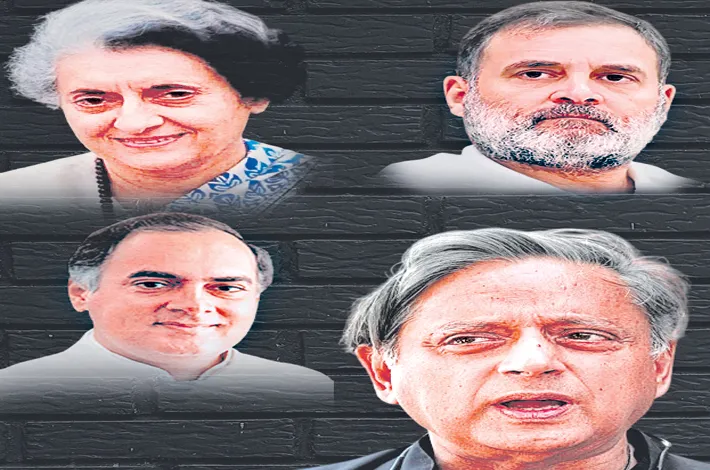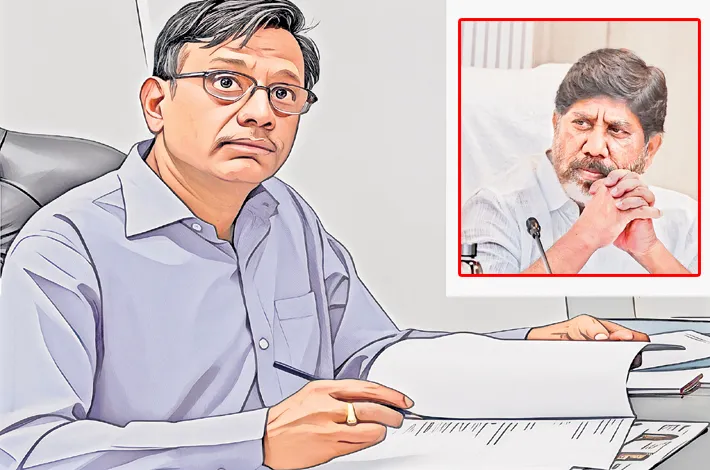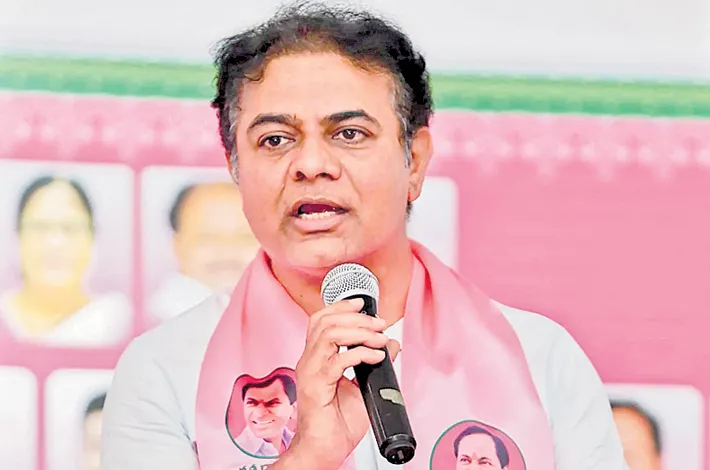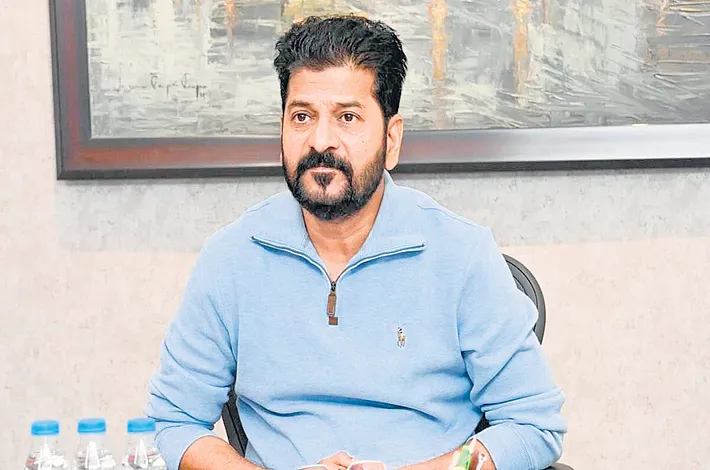Cong MP sparks “nepotism” debate: Cong, BJP point fingers at each other
05-11-2025 12:00:00 AM

The comment:
■ Congress MP Shashi Tharoor accused Gandhi family of normalizing dynastic politics as a “birthright,” and added that one family’s decades of political domination was not right.
The attack:
■ BJP branded Congress a “private limited company” run by a single family.
■ A BJP Spokesperson pointed out that 32 percent of Congress MPs have dynastic links, compared to 18 percent in the BJP—a gap the ruling party insists proves its relative meritocracy.
■ BJP also pointed out that while it had 11 presidents since the last 45 years, each unrelated to the others, such a thing was not possible in Congress.
In a scathing opinion piece that has rocked the Congress party, veteran MP Shashi Tharoor accused the Gandhi family of normalizing dynastic politics as a “birthright,” declaring that one family’s decades-long dominance has affected every level of Indian governance. Writing that the Nehru-Gandhi lineage—from Jawaharlal Nehru through Indira, Rajiv, Sonia, Rahul, and now Priyanka Gandhi Vadra—has “towered over Indian politics,” Tharoor argued the Congress leadership model has legitimized the notion that power is inherited rather than earned.
In a column published by Project Syndicate on October 31, Tharoor wrote-“For decades, one family has towered over Indian politics… This has cemented the idea that political leadership can be a birthright and has penetrated politics across every party, region, and level.”
The numbers tell a stark story. Sonia Gandhi served as Congress president for 22 years. In the party’s 78-year post-Independence history, a Gandhi has held the presidency for 41 years and served as prime minister in Congress governments for over 37 years. Tharoor’s critique lands as Priyanka Gandhi enters the Lok Sabha from Wayanad and Rahul Gandhi struggles to revive the party’s fortunes, prompting the question: does the Gandhi surname still guarantee a claim to the throne?
The BJP seized the moment, branding Congress a “private limited company” run by a single family. A party Spokesperson pointed out that 32 percent of Congress MPs have dynastic links, compared to 18 percent in the BJP—a gap the ruling party insists proves its relative meritocracy. He listed regional giants like RJD, SP, DMK, TMC, National Conference and Shiv Sena (UBT), each controlled by one family since inception, and accused the Congress of setting the template for the disease. BJP leaders also point out that the party has rotated 11 presidents in 45 years, none related, while Congress reserves its top post for one bloodline.
Congress defenders fired back, insisting Gandhi family members are democratically elected and have sacrificed for the nation. They accused the BJP of hypocrisy, reeling off names of Union ministers and MPs—Anurag Thakur, Bansuri Swaraj, Jyotiraditya Scindia, Poonam Mahajan, Dushyant Chautala, and BCCI chief Jay Shah—whose political ascent owed everything to famous parents. Fifteen cabinet ministers, they claimed, carry dynasty baggage.
Defending Rahul Gandhi, another Congress spokesperson argued that the Wayanad MP has secured five Lok Sabha victories through popular mandate from constituencies like Amethi and Rae Bareli, not solely due to his family name. "The people of Amethi and Rae Bareli voted him into power, not just because he is some Gandhi," he said, acknowledging the legacy benefits but insisting Gandhi has himself advocated for moving beyond dynasties. He pointed to a number of recent appointments of leaders who started as grassroot level workers and risen up the ranks, as evidence of internal reforms.
The DMK which is a key alliance partner of the Congress came to its defence. A DMK spokesperson counter attacked the BJP pointing out that the party had a high number of dynasty and family linked MLAs in Maharashtra. He too pointed out at Amit Shah’s son heading the ICC. Defending the appointment of Tamil Nadu's Deputy Chief Minister Udhayanidhi Stalin, the spokesperson emphasized merit and electoral mandate over nepotism claims. “It was not that he was arbitrarily made—there's echoes within the party cadres and by other ministers and other MLAs that he was made the DCM." the DMK leader claimed.
As the discussion concluded amid interruptions and raised voices, the core tension remained unresolved: the clash between republican ideals and entrenched family legacies in Indian politics. With fingers pointed from within the Congress, Tharoor's intervention has amplified calls for accountability, leaving the party's commitment to anti-dynasty reforms under intense scrutiny.








